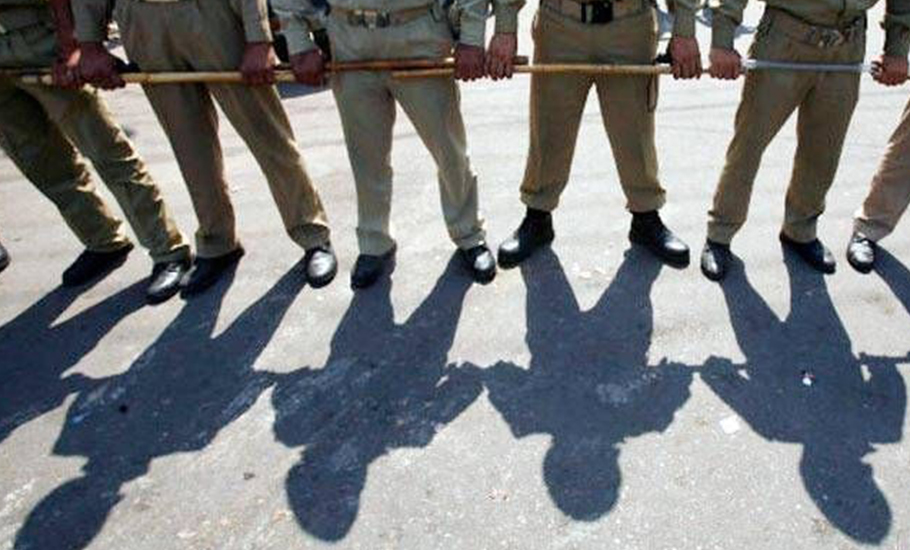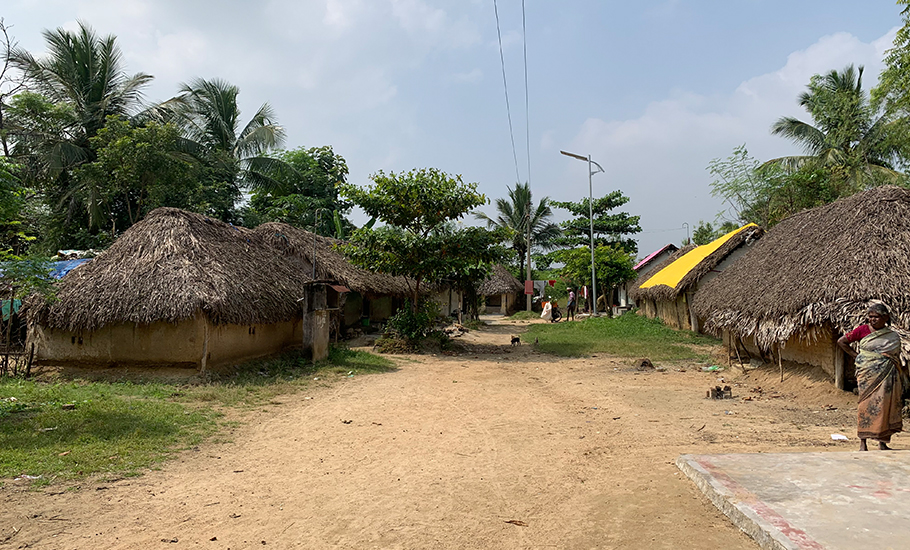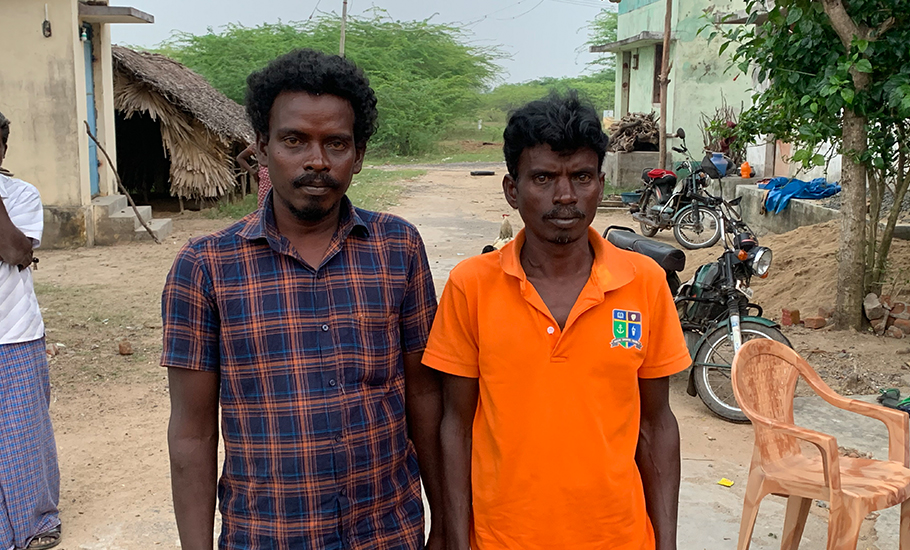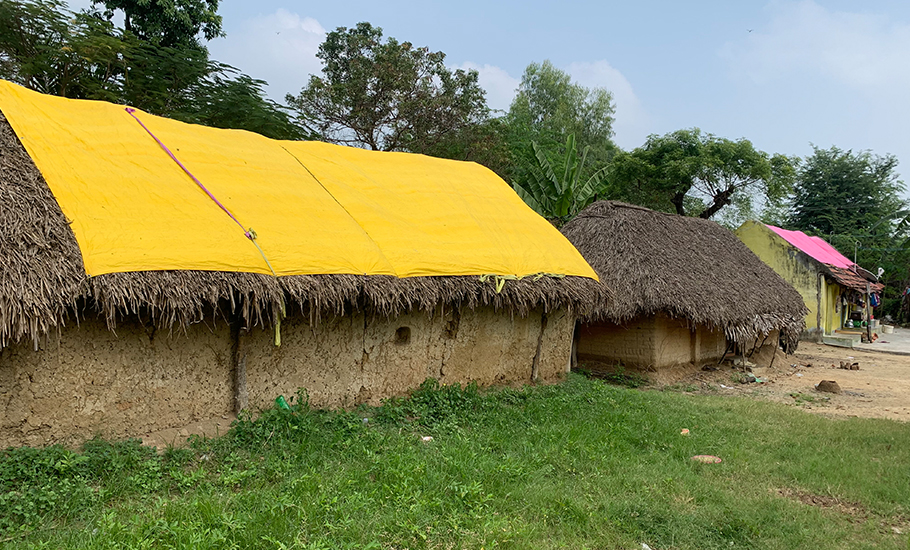
- Home
- News
- Analysis
- States
- Perspective
- Videos
- Education
- Entertainment
- Elections
- World Cup 2023
- Features
- Health
- Budget 2024-25
- Business
- Series
- NEET TANGLE
- Economy Series
- Earth Day
- Kashmir’s Frozen Turbulence
- India@75
- The legend of Ramjanmabhoomi
- Liberalisation@30
- How to tame a dragon
- Celebrating biodiversity
- Farm Matters
- 50 days of solitude
- Bringing Migrants Home
- Budget 2020
- Jharkhand Votes
- The Federal Investigates
- The Federal Impact
- Vanishing Sand
- Gandhi @ 150
- Andhra Today
- Field report
- Operation Gulmarg
- Pandemic @1 Mn in India
- The Federal Year-End
- The Zero Year
- Premium
- Science
- Brand studio
- Home
- NewsNews
- Analysis
- StatesStates
- PerspectivePerspective
- VideosVideos
- Entertainment
- ElectionsElections
- Sports
- Loading...
Sports - Features
- Budget 2024-25
- BusinessBusiness
- Premium
- Loading...
Premium

How police baton casts a long shadow over Irula tribal families

K Panneer and his brother Mari are well known throughout their village and beyond. Their ‘infamy’, sadly, rests on a ‘personal tragedy’. Back in 2008, the brothers were dragged out of their sleep in the middle of the night by cops in plain clothes, shoved into a van with their hands tied behind and taken to a police station 40 km away. Nearly 14 years later, the nightmare continues...
K Panneer and his brother Mari are well known throughout their village and beyond. Their ‘infamy’, sadly, rests on a ‘personal tragedy’. Back in 2008, the brothers were dragged out of their sleep in the middle of the night by cops in plain clothes, shoved into a van with their hands tied behind and taken to a police station 40 km away.
Nearly 14 years later, the nightmare continues for Panneer, 37, and his elder brother Mari, 40. They have been accused of a number of thefts, Panneer claims, they haven’t committed. In their defence, the cops too haven’t been able to prove any of it, yet continue to hound the two. Why? “Our only crime is our birth – into a poor Irula (scheduled tribe) family.
At the time of his arrest in 2008, Panneer used to work for a bottle company near Thirukovilur village (now in Kallakurichi district). On that night, he had returned to his small hut amid the farmlands in Keelaiyur after working for over nine hours. He quickly ate his dinner and lay down to rest next to Mari and Koothapan, a guest. His parents too were home. Suddenly, six men – one of them in police uniform – barged into the room and dragged Panneer, Mari and Koothapan out of the hut and bundled them into a police vehicle where four others were already inside.
“We were taken to Thirunavalur police station in Ulundurpet, 40 km away from home and beaten,” he says.
But why? What was their crime?
“Every time we asked that, the baton fell harder on us,” Panneer recalls the events of the day for The Federal.
The cops then showed a man and asked if Panneer and his brother had met that man before. “We didn’t know the man. But he apparently told the police that we were with him while he was stealing. The cops repeatedly asked us to confess to a theft which we had not committed.”
Torture trail
When they refused to confess to the crime, the torture increased. Panneer was stripped down to his underwear and beaten mercilessly. “I was made to stand on a chair. They then tied my thumbs and hung me from a hook in the ceiling. The cops then pulled out the chair. So, I was hanging from the hook with my thumbs bearing the entire weight of my body. They then started to beat me hard on my bottom. I thought I would not survive,” says Panneer. This time around, the cops didn’t give up until Panneer did.
On the fourth day of the arrest, Panneer admitted to a crime he had not committed. He was not even told what it was that he had “stolen”. “I was taken to the Varanjaram police station in Kallakurichi and my thumb impression was taken on a few papers. A day later, I was produced before the judicial magistrate who didn’t bother to ask anything.” He was then sent to the Cuddalore central prison.

Meanwhile, with no information given by the police, the parents kept looking for the three “boys”. “Most of the police stations told us they did not detain anyone from our area. It was only a week later that we came to know that they were held for theft and lodged in prison,” says his mother K Viruthambal.
Subsequently, the family members approached an advocate through Pazhankudi Irular Pathukappu Sangam, which works towards social protection and well-being of the Irular people, to obtain bail. “Until then, we believed that only one case of theft was slapped on us. But when the advocate started processing the bail application, we came to know there were four cases for stealing copper wire at various places,” he says.
According to police documents accessed by The Federal, a special team headed by the then Thirunavalur police inspector Kannan detained the three men along with others, on suspicion, when they were standing with a sack under a footbridge near Kongarpalayam Manimuthar river in Kallakurichi on October 23, 2008. During the inquiry, it was revealed that the suspects were involved in multiple theft cases and they had been stealing things to purchase liquor, the document added.
Panneer, however, claims he had never visited Chinnasalem or Thindivanam where police say he committed the thefts.
The two brothers came out on bail after spending eight months in prison. Immediately, they moved to an Irular settlement at Santhapetti in Thirukovilur. “We became easy targets only because we lived without community support. So, we moved to Santhapetti where over 35 Irula families were residing,” Panneer adds.
But the damage was done. Panneer lost his job because of his jail stint. “The bottle company owner refused to give me work.”
He now works as a daily wager in farms a few times a month. On days when he gets work, he earns about Rs 200 to Rs 300. The family expenses are mainly borne by his wife who earns about Rs 5,000 per month by working as a domestic help in multiple houses. “It is difficult to survive with two children and such little money. But we feel safety is more important,” he says.
Many of his relatives go to other districts for work. “But I’m scared the police will arrest me again.”
A regular affair
According to professor Prabha Kalvimani, a well-known educator and tribal rights activist, the police since 1993 have booked more than 50 people from the tribal community in Villupuram, Cuddalore and Kallakurichi districts in fake cases related to thefts.

“Ideally, the police must produce an accused before a magistrate within 24 hours of arrest. But in these cases, each of them were kept in illegal custody for days and tortured to admit to crimes they had not committed. They have registered multiple theft cases against each of them,” he says, adding that while close to 10 people have been acquitted, the rest of them are still fighting for justice at the courts.
Irular men are targeted by the police, he says, mostly because they live in small groups in isolated locations and are more vulnerable compared to other communities. They often lack the support that other communities have.
The tribal population of Tamil Nadu is very small. According to the 2011 Census, the state’s 36 tribes constitute just 1 per cent (7.21 lakh) of the total population of Tamil Nadu (7 crore). The Irulars, classified as particularly vulnerable, account for 25 percent of the ST population. As per the census, 1,74,224 Irulars live in the state and they are the second largest tribal community after the Malayali tribe.
Rights activists working on the ground say whenever the police have pending theft cases, they look for people residing in isolated locations without any support, nab them, torture them till they break down and admit to crimes. The Irulas often find themselves at the receiving end of police torture.
In one such instance on August 26, 2019, at Ulundurpet in Kallakurichi district (then in Villupuram district), R Babu, 27, was picked up from his house while he was cooking for his pregnant wife at their hut in T Kolathur near Ulundurpet. During interrogation, the police also asked about his relatives who visit him regularly.
“That’s how the police ended up visiting our settlement at Keeranur near Ulundurpet and nabbed three of us from our homes,” M Velu (47), a relative of Babu, tells The Federal. The cops then took them to a building near Elavanasur Kottai police station.
The three of them were tortured and forced to admit to having stolen money from temples. Not just that, the cops further ferreted out information about more relatives. Afraid of the beatings, Velu told them about his relatives in Kattunemili village. Later that day, police nabbed R Vijayakumar (37) and V Sankar(27), along with their guest Manikandan (32), from Kattunemili.

“I was initially surprised to see Velu with the police officials. When I enquired what the matter was, they politely asked us to accompany them to the station for an inquiry. So we did. But once we reached their place, their attitude started to change. They showed me a CCTV footage which captured the movements of a man whose features were not clear and asked whether it was me. I told them no. It was then the beatings started,” Vijayakumar recalls.
On the fourth day, he was taken to the government hospital in Ulunthurpet. “My hands and legs were badly swollen and I could hardly move. There, they claimed I fell down from a vehicle.”
Just like Panneer, cases against Velu were registered at Ulundurpet, Thirunavalur and Rishivandiyam police stations for stealing money from temples. Similar cases were registered against his relatives as well and they were lodged in Cuddalore central prison.
A few days after their remand, on August, 27, 2019, policemen from Elavanasur Kottai travelled all the way to Kumbakonam and arrested three more of Babu’s relatives – S Subramani, 44, and his elder brothers, S Raja, 45, and S Mani, 42. They were working at a brick kiln after visiting Babu at the prison. The trio were brought to Villupuram, kept in illegal custody and tortured for multiple days to confess to theft cases before producing them before judicial magistrate and lodging them in prison.
Even women were not spared
The atrocities do not stop there. There are a few instances when policemen allegedly harassed and raped women after arresting the male members of their families. One such incident was reported from T Mandapam near Thirukovilur in 2011. The case is still pending before the court.
In this incident, the police detained five men of a family and then allegedly raped four women. The women said they were taken to a eucalyptus groove nearby and raped by five policemen. A week after the incident, the then Chief Minister J Jayalalithaa had announced a compensation of Rs 5 lakh for the victims and suspended the policemen.
Their suspension, however, was revoked by the high court a few months later on the ground that the charge sheet was not filed on time. Even after a decade, the charge sheet has not been filed and the women are still waiting for justice.
“Ideally, policemen who illegally detain tribal men and register fake cases against them should be booked under the Scheduled Caste and Scheduled Tribe (Prevention of Atrocities) Act and should be punished. But so far, such a punishment was given to policemen only once in 2006 in a case dating back to 1994. As it requires a lot of struggle, we are mainly concentrating on getting the innocent tribal men out of jail first,” says Professor Kalvimani.
According to him, bringing the men out on bail itself is a difficult task because at least two sureties are required to obtain bail for one person. “Nobody is willing to give surety for tribals. We had to put in a lot of effort to arrange sureties for them,” he adds.
The police, however, refuse to talk about the incidents. While most top officials in the effected districts refused to comment, Villupuram SP Sreenatha claimed no such incidents have taken place in his district in recent times. He refused to comment about the pending cases.
Meanwhile, shrouded in such silence, the hounding of Irular villagers continues, sometimes for months, years and decades.
A never-ending trial
Just a month after Panneer’s return, police officers in plain clothes visited Santhapetti again on July 13, 2009. “It was midnight and they detained me and Mari again.” The cops told the villagers that the brothers were being taken for an inquiry and would be released soon. “But the cops didn’t tell us where they would be taken. Some of the villagers managed to identify that the cops came from the Thiruppalapanthal police station,” says a villager who didn’t want to be named.
“Next day, we all went there and demanded their release. The police tried hard to convince us and send us back. But when we did not budge, they released the two boys.”
Between 2010 and 2013, Panneer and his brother were acquitted in all the cases due to lack of evidence. As the family gradually tried to put the nightmare behind, the police came looking for Panneer again on March 16, 2018. This time, it was during the day and all five policemen were in plain clothes.
“After enquiring about the previous cases, they showed me the photo of a man and asked whether I knew him. I told them no and they left. Hours later, I started receiving multiple phone calls from the police station directing me to visit them. As I was scared that they would slap another fake case on me, I travelled to a relative’s house and then to Thindivanam to avoid arrest,” he says.

The next day, he, along with a lawyer, visited the police station with a detailed petition to the Villupuram superintendent of police expressing his fears. “It was only after I escalated the issue, the police stopped bothering me,” he adds.
Panneer, however, is not sure the cops have forgotten his address. I often hear knocking on the door in my dreams.”

